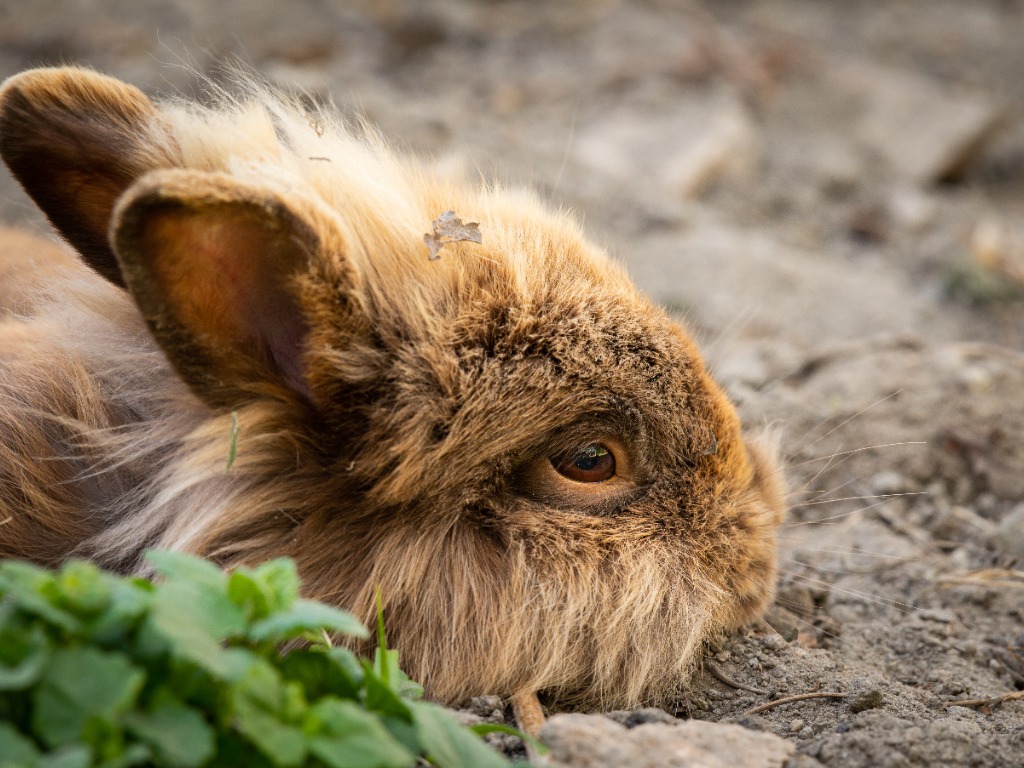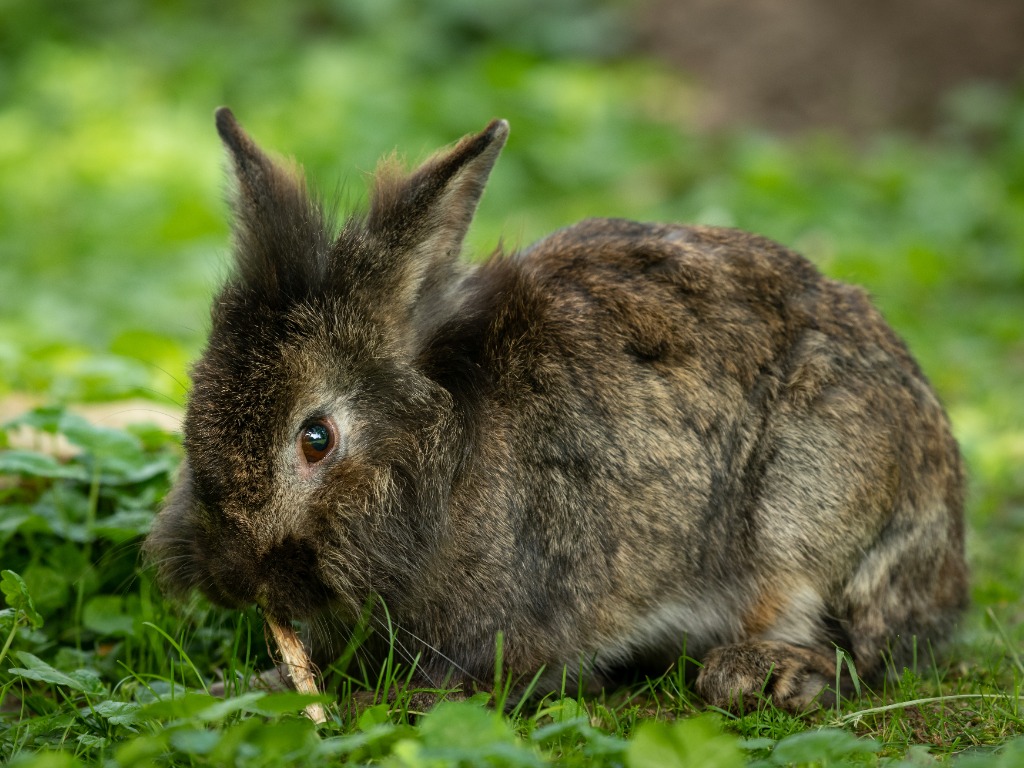How Long Does a Dwarf Papillon Rabbit Live? Lifespan and Care Tips
Dwarf Papillon Rabbits are a popular pet choice for many households. They are small, adorable, and easy to take care of. However, before adopting a Dwarf Papillon Rabbit, it’s important to understand its lifespan and care requirements.

On average, Dwarf Papillon Rabbits can live up to 12 years if given proper care. However, like any other pet, their lifespan can be shortened by diseases or improper care. Providing them with a healthy diet, regular exercise, and a clean living environment is essential to ensure they live a long and happy life.
In this article, we will explore the lifespan of Dwarf Papillon Rabbits in detail. We will discuss the factors that can affect their lifespan, such as diet and exercise, and provide tips on caring for them to ensure they live long and healthy life. Whether you’re a new or experienced pet owner, this article will provide the information you need to care for your Dwarf Papillon Rabbit.
The Lifespan of Dwarf Papillon Rabbits
Dwarf Papillon Rabbits are a popular pet breed known for their small size and adorable appearance. If you are considering getting one of these cute bunnies as a pet, it is important to know about their lifespan. In this section, we will discuss the factors that affect the lifespan of Dwarf Papillon Rabbits and their average lifespan.
Factors that Affect Lifespan
Like all living creatures, the lifespan of Dwarf Papillon Rabbits can be affected by various factors. Some of the most important factors that can impact their lifespan include:
- Diet: A healthy diet is crucial for the health and longevity of Dwarf Papillon Rabbits. They need a diet rich in hay, fresh vegetables, and high-quality pellets.
- Exercise: Regular exercise is important for Dwarf Papillon Rabbits to maintain good health. They should have plenty of room to move around and play.
- Genetics: Some Dwarf Papillon Rabbits may have genetic predispositions to certain health conditions that can impact their lifespan.
- Environment: A clean and safe living environment is important for the health and well-being of Dwarf Papillon Rabbits. They should have a comfortable and secure place to sleep, access to fresh water, and a litter box.
Average Lifespan of Dwarf Papillon Rabbits
The lifespan of Dwarf Papillon Rabbits is similar to that of most other pet bunnies and rabbits. They can live as long as 12 years if given the proper care, but diseases may shorten their expected lifespan. On average, Dwarf Papillon Rabbits live for 8-12 years.
It is important to note that the lifespan of Dwarf Papillon Rabbits can vary depending on their health and genetics. Some rabbits may live longer than 12 years, while others may have shorter lifespans due to health issues or other factors.
In conclusion, Dwarf Papillon Rabbits can make wonderful pets for those willing to provide them with the proper care and attention they need. By understanding the factors that impact their lifespan, you can help ensure that your furry friend lives a long and happy life.
Caring for Dwarf Papillon Rabbits

Dwarf Papillon rabbits are adorable and make great pets. However, they need proper care to ensure that these rabbits live a long and healthy life. Here are some tips on how to care for your Dwarf Papillon rabbit.
Nutrition
Dwarf Papillon rabbits require a healthy and balanced diet. They need a constant supply of hay, fresh vegetables, and water. Pellets can also be given in limited amounts. It is essential to avoid feeding your rabbit with high-carbohydrate and high-fat foods. These foods can cause obesity and other health problems.
Here is a table of recommended daily food intake for Dwarf Papillon rabbits:
| Food Type | Amount |
| Hay | Unlimited |
| Fresh Vegetables | 1-2 cups |
| Pellets | 1/8-1/4 cup |
Exercise
Dwarf Papillon rabbits are energetic and need regular exercise to stay healthy. They require at least 3-4 hours of exercise outside of their cage every day. Providing them with plenty of space to run around and play is essential. You can also provide your rabbit with toys to keep them entertained.
Environment
Dwarf Papillon rabbits need a clean and comfortable living environment. They should be kept in a cage at least four times their size. The cage should have a solid bottom to prevent injuries to its feet. It is essential to clean the cage regularly and provide your rabbit with fresh bedding.
Here are some tips for creating a comfortable living environment for your Dwarf Papillon rabbit:
- Provide a litter box filled with hay or paper-based litter.
- Keep the cage in a quiet, cool area away from direct sunlight and drafts.
- Provide your rabbit with a hiding place, such as a cardboard box or a tunnel.
By following these tips, you can ensure that your Dwarf Papillon rabbit lives long and healthy. Remember to give them plenty of love and attention; they will be happy and content.
Common Health Issues
Dwarf Papillon Rabbits are generally healthy pets, but like all animals, they can develop health problems. Here are some common health issues that dwarf papillon rabbits may experience:
Gastrointestinal Problems
Gastrointestinal problems are common in rabbits, including dwarf papillon rabbits. The following are some of the most common gastrointestinal problems that may affect dwarf papillon rabbits:
- Diarrhea
- Constipation
- Bloat
- Stasis (gastrointestinal stasis)
Various factors, including poor diet, stress, and lack of exercise can cause these conditions. If you notice any signs of gastrointestinal problems in your dwarf papillon rabbit, such as a loss of appetite, lethargy, or changes in stool consistency, you should consult a veterinarian.
Dental Problems
Dental problems are also common in rabbits, including dwarf papillon rabbits. The following are some of the most common dental problems that may affect dwarf papillon rabbits:
- Malocclusion (misaligned teeth)
- Overgrown teeth
- Abscesses
Various factors, including poor diet, genetics, and lack of chew toys can cause these conditions. If you notice any signs of dental problems in your dwarf papillon rabbit, such as drooling, difficulty eating, or changes in behavior, you should consult a veterinarian.
Respiratory Problems
Respiratory problems are less common in rabbits than gastrointestinal and dental problems, but they can still occur, including in dwarf papillon rabbits. The following are some of the most common respiratory problems that may affect dwarf papillon rabbits:
- Snuffles (Pasteurella multocida infection)
- Pneumonia
- Upper respiratory infections
Various factors, including stress, poor ventilation, and exposure to other sick animals can cause these conditions. If you notice any signs of respiratory problems in your dwarf papillon rabbit, such as sneezing, coughing, or difficulty breathing, you should consult with a veterinarian.
Preventive Measures

Preventive measures are essential in ensuring the longevity and health of a Dwarf Papillon Rabbit. Here are some of the most important measures to consider:
Vaccinations
Vaccinations are an essential part of preventive care for Dwarf Papillon Rabbits. Rabbits are susceptible to diseases like myxomatosis and viral hemorrhagic disease (VHD). Vaccinations can help protect rabbits from these diseases. It is recommended to vaccinate rabbits at least once a year.
Regular Check-ups
Regular check-ups with a veterinarian are crucial to ensure the health of a Dwarf Papillon Rabbit. During these check-ups, the veterinarian can examine the rabbit’s overall health, including their teeth, ears, eyes, and fur. They can also check for any underlying health problems and provide appropriate treatment.
Spaying/Neutering
Spaying and neutering are essential for the health and well-being of a Dwarf Papillon Rabbit. Spaying and neutering can help prevent certain health problems, such as uterine cancer in females and testicular cancer in males. It can also help prevent unwanted litter and reduce aggressive behavior.
In addition to the above preventive measures, it is essential to provide a healthy diet and a clean living environment for a Dwarf Papillon Rabbit. A healthy diet should consist of hay, fresh vegetables, and limited pellets. The living environment should be kept clean and spacious, with plenty of room for exercise and play.